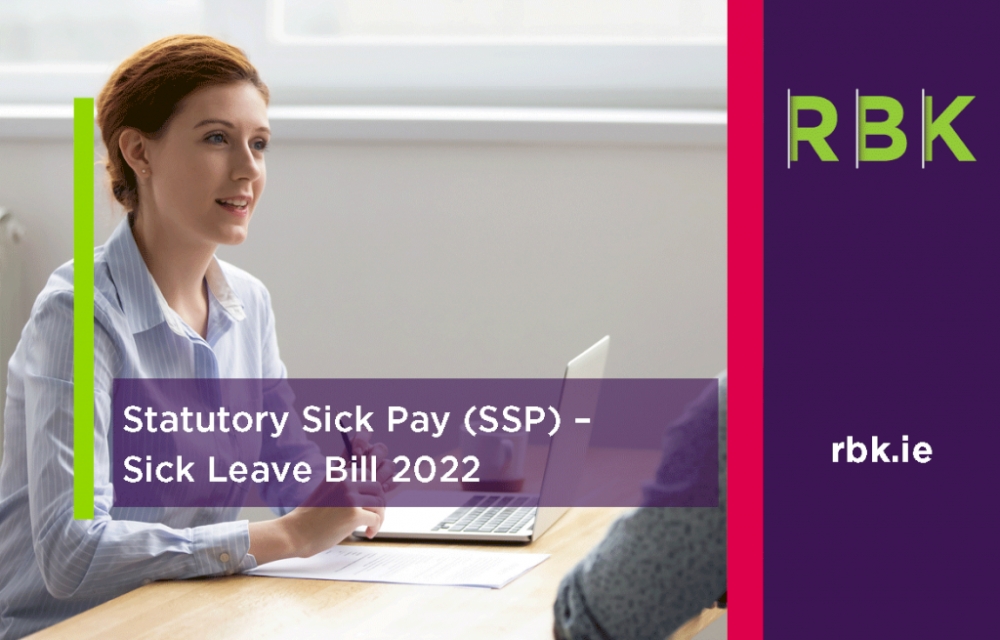The Sick Leave Bill was recently passed by the Oireachtas. The Tánaiste and Minister for Enterprise, Trade and Employment, Leo Varadkar, announced on the 13th July 2022, that all workers will have the right to paid sick leave, as the Bill 2022 completed its passage through both Houses of the Oireachtas. Once the Bill has been enacted, the scheme is due to come into force later in 2022.
- If your company already provides paid sick leave, you will need to review the rules in light of the upcoming legislation, and look at how the Bill relates to your company.
- As an employer, you’re obliged to ensure that employees who express their intention to take or do take statutory sick leave aren’t treated differently. An employee who avails of their right to statutory sick leave should not be penalised for their absence.
- Statutory entitlement to sick pay will be phased in as part of a 4-year plan and will initially be for 3 days per year once the Bill is enacted. The Bill states that employers will provide employees, who have 13 weeks’ continuous service, with sick leave pay for a number of days of certified sick leave per year.
- Phased in over a four (4) year period as follows:
- Three (3) days per year in Year 1
- Five (5) days payable in Year 2
- Seven (7) days payable in Year 3
- Ten (10) days payable in Year 4
- An employer will only be obliged to pay up to 70% of usual daily earnings, subject to a cap of €110 per day - The Government will not “top up” the employer’s contribution to match 100% of usual daily earnings. The rate of 70% is set to ensure excessive costs are not placed on employers, who in certain sectors may also have to deal with the cost of replacing staff who are out sick at short notice. And to also ensure that employers do not face excessive costs in relation to employees who are on high salaries.
- Employees will be obliged to provide a medical certificate in respect of each day.
- If an employer maintains it cannot afford to discharge its SSP obligations, an exemption can be granted by the Labour Court.
- If an employer already provides more favourable sick leave benefits to an employee, they will not be obliged to comply with the SSP rules. If there are no sick leave benefits or less favourable sick leave benefits in place, the employer will need to review and adjust employee contracts with regard to the upcoming legislation.
- The Bill sets out the criteria for employers to determine whether their existing sick pay scheme is more favourable than the proposed statutory provisions provided in the Bill:
- The period of service of an employee required before sick leave is payable
- The number of days an employee is absent before sick leave is payable
- The period for which sick leave is payable
- The amount of sick leave that is payable
- The reference period of the sick leave scheme
- An employer, must keep proper records for each employee. The records must be maintained for four years and include information in relation to each employee who availed of sick leave. The following information must be included in the records:
- The employee’s period of employment
- The dates of statutory sick leave in respect of each employee
- The rate of statutory sick leave payment in relation to each employee
- An employer who fails to maintain accurate records may be convicted and subject to a fine of up to €2,500.
Contact Us:
For more advice and support or to discuss our HR and Payroll services please contact a member of the RBK HR Solutions or RBK Payroll Solutions Teams:
- Yvonne Clarke - HR Solutions Manager - (090) 6480600
- Mary Byrne – Payroll Solutions Manager - (090) 6480629


